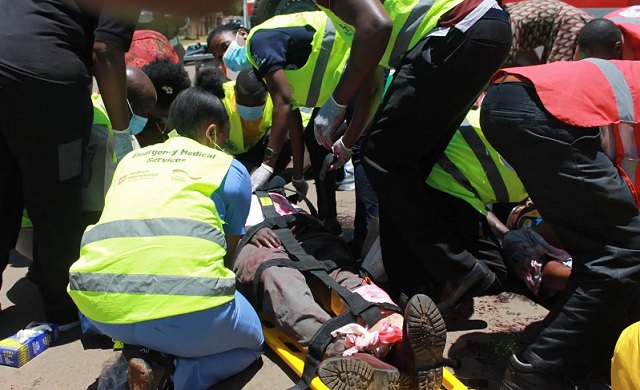
Gulu, Uganda | THE INDEPENDENT | Gulu Region Referral Hospital (GRRH) is struggling to manage and respond to Emergency Medical Services (EMS).
The EMS Unit at GRRH was established this year as a requirement by the health ministry but officials in the department say that they are faced with an acute shortage of staff and medical equipment amidst high cases received.
An Emergency Medical Service (EMS) system is defined as one that organizes all aspects of care provided to patients in the pre-hospital or out-of-hospital environment.
It is critical to the improvement of outcomes in patients with obstetric and medical emergencies and severe injuries, and other serious time-sensitive illnesses.
Doctor Joyce Anena Oyet, the Director Emergency Health Services Unit at Gulu Regional Referral Hospital told URN during an interview that the department has only one nurse and doctors who are overwhelmed by the high demand for their services.
According to Oyet, the hospital sometimes receives more than twenty cases to attend to yet they have inadequate personnel, ambulance, and medical supplies.
Yoweri Idiba, the Assistant District Health Officer of Gulu explained that they are struggling to effectively ensure emergency medical services noting that they have less than six ambulances and trained personnel forcing them to heavily rely on development partners.
Tom Kyobe, the President of the Association of Ambulance Professionals Uganda said that due to the challenges they trained 35 health workers and ambulance drivers in managing emergency medical conditions within the Acholi sub-region.
Joseph Ssenkumba, an EMS trainer said some of the lifesaving trainings included keeping open airways, determining deteriorating conditions, what should be delayed, trauma management, chronic disease management, heart disease management, and simulation of road accident victims.
*****
URN
 The Independent Uganda: You get the Truth we Pay the Price
The Independent Uganda: You get the Truth we Pay the Price



